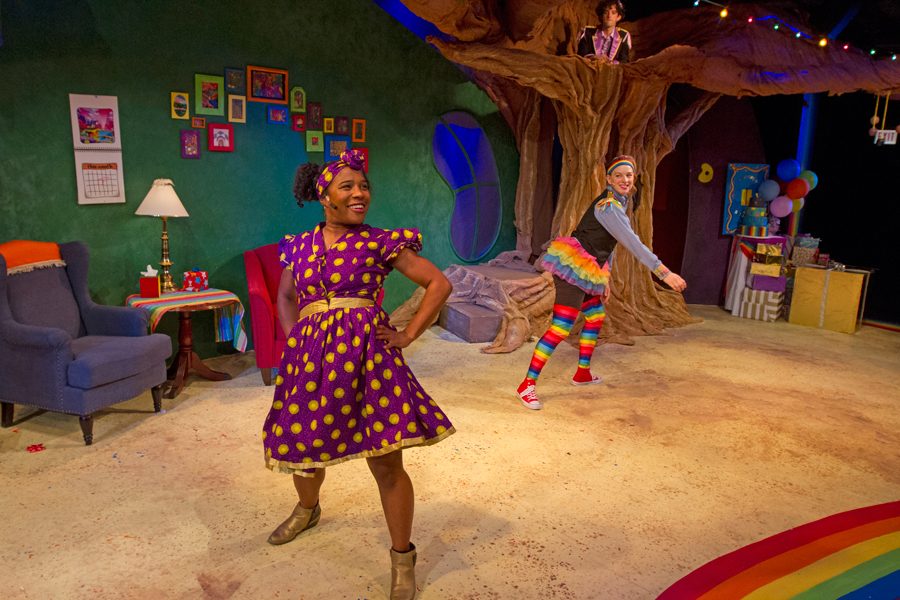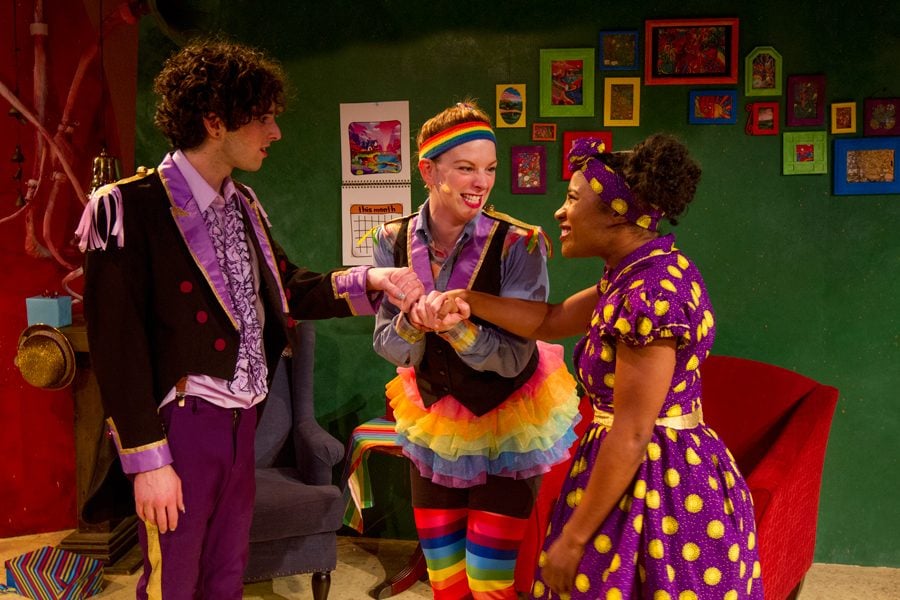NU alumni create kid-friendly play about diversity at Chicago Children’s Theatre
“My Wonderful Birthday Suit!” aims to tackle the tough topics of diversity and race in a colorful, kid-friendly way.
February 7, 2018
A&E
Tackling topics of diversity and race through art is never easy — especially when it comes to children. But in the world of “My Wonderful Birthday Suit!” colorful costumes, cheerful music and fun characters’ names present diversity to children through the scene of a birthday party.
Will Wilhelm (Communication ’14), who will be performing in the play at Chicago Children’s Theatre from Jan. 16 through Feb. 18, described the play as a means through which adults can start conversations about “hot button issues.”
“What’s really important is we’re giving both children and their teachers and families tools and building blocks and vocabulary of how to talk about these things with children from a very young age,” Wilhelm said.”I think it’s really, really easy and common for people to try to ignore those issues with children.”
The show is aimed at audience members from the ages of 4 to 7, according to Wilhelm.
The rehearsal process for this show was incredibly fast, with rehearsals beginning early January and the show opening two weeks later, understudy Communication junior Grace Bobber said.
“The rehearsal period was so demanding and exhausting because it was very physical and (required) mental work every day to try to create this world characters live in and to try to create relationships between the characters,” Bobber said.
“My Wonderful Birthday Suit!” opens with a tense situation caused by Wilhelm’s character calling another character “brown” several times in a negative manner, Wilhelm said. They said the characters then discuss celebrating diversity, while Wilhelm’s character reflects upon his thoughts in the “thinking tree.”

The cast of “My Wonderful Birthday Suit!” plays in front of the “Thinking Tree.” The show runs at Chicago Children’s Theater through Feb. 18.
Playwright and director Gloria Bond Clunie said she wanted the thinking tree to represent a positive location where children can reflect, rather than a negative place where they must sit in a time out.
“It takes you higher up to give you another perspective,” Clunie, an NU alumna, said. “It doesn’t give the answers, but springing from it there’s vocabulary that helps one explain and understand; it helps the person find language to understand and negotiate their world.”
After the show, the actors aim to further engage children by asking them questions about the key themes they remembered, Wilhelm said. Both Clunie and Wilhelm mentioned the importance of children immersing themselves in live theatre at a time when many seem to be attached to their electronics.
“We are often looking into a screen, even if we are looking into a screen with another person on Facetime,” Clunie said. “The whole idea of having live actors on stage responding to each other and children responding to the actors, I think that’s a very important way to tell stories that help us define who we are.”
Wilhelm said the play aims to encourage children not only to be tolerant of differences, but also to learn to celebrate them.
Wilhelm said this celebration is an integral theme of the play, and that it is important to recognize every aspect of a person, and to not try to avoid uncomfortable conversations about race and diversity.
“It’s all too common that we sort of ignore certain topics for people’s convenience or for people’s comfort, and that’s often a detriment to the person who’s not being fully seen,” Wilhelm said.
Email: [email protected]
Twitter: @carmenmfern


